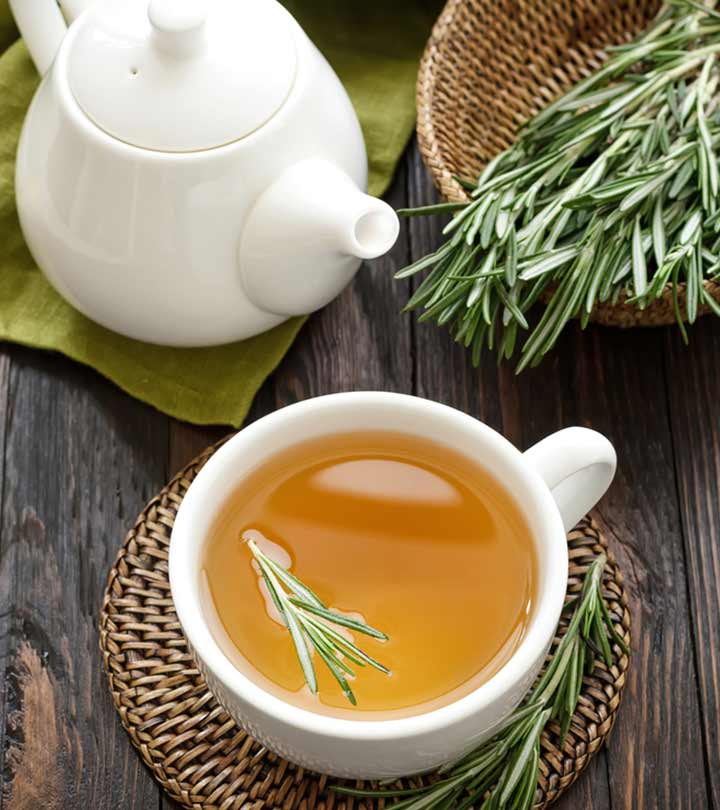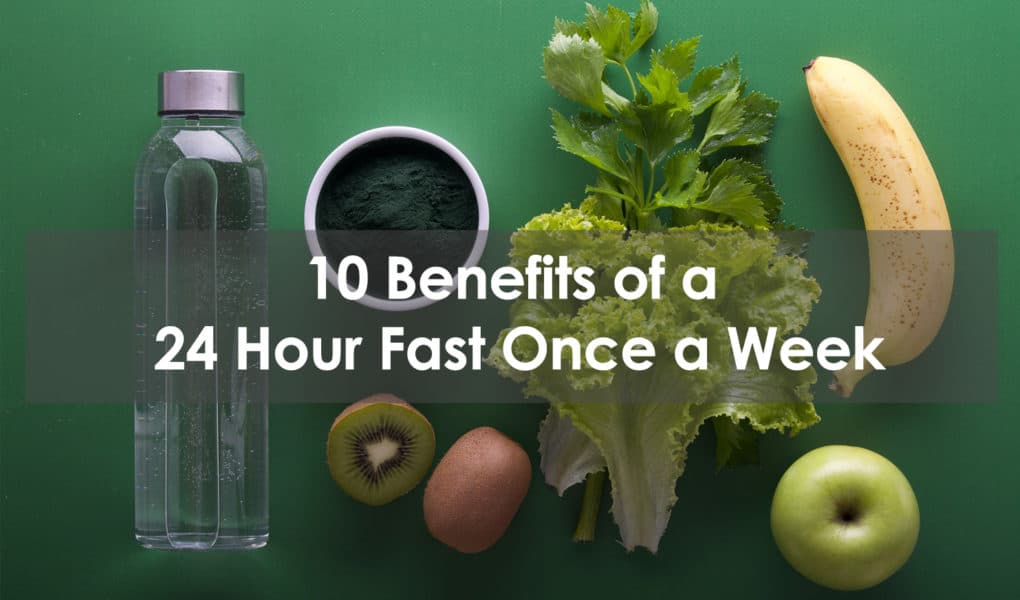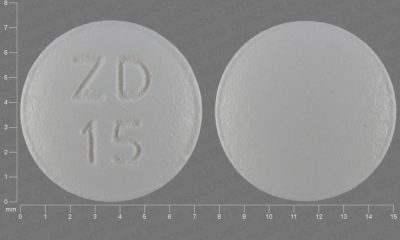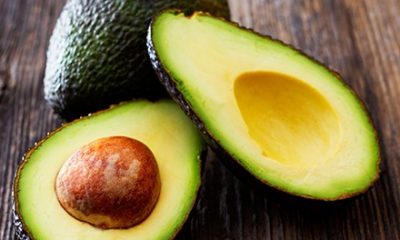Health
6 Benefits of conjugated linoleic acid and side effects

Discover the 6 Benefits of conjugated linoleic acid and side effects.
While many hear “butter and beef” and immediately think of heart attacks and weight gain, the truth is that all types of natural fats are healthy and even beneficial when you eat high-quality versions of them and take them in moderation, In particular, the benefits of conjugated linoleic acid are necessary for our diet.
The body needs all three types of fats (yes, even saturated fats!) For optimal health, as they all have various functions, from pregnancy to digestion to brain function.
Not only is it true that eating fat doesn’t make you fat, but certain types of healthy fats are some of the best fat-burning foods available.
But quality is very important for fats, especially those that come from animal products; These types of acids are known to fight cancer, block weight gain, and help build muscle, and are found almost exclusively in the high-quality meat and lard of healthy grass-fed cows or other animals.
According to multiple investigations, the benefits of conjugated linoleic acid include:
• Muscle enhancements and muscle strengthening
• Anti-cancer effects
• Bone building benefits
• Growth and development support
• Reverse atherosclerosis (hardening of the arteries)
• Improve digestion
• Reduce food allergies and sensitivities
How does conjugated linoleic acid work?
All types of fats (lipids), whether they are products of animal origin, eggs, dairy products, oils, nuts, seeds, or coconuts, are made up of fatty acids.
Some fats are considered essential because the body cannot produce them on its own, while others are not essential because the body can synthesize them from other nutrients.
The essential fats that we need to obtain from our diet include omega-3 polyunsaturated fatty acids (found in fish, shellfish, eggs, and some nuts or seeds) and omega-6 polyunsaturated fats (found mainly in vegetable oils, nuts, and seeds ).
These two types have important, but somewhat opposite, effects on the body; Omega-3s are known to be anti-inflammatory, while omega-6s are inflammatory.
We need both types of essential fats to balance our immune, hormonal, digestive, and nervous system functions, which is why there are so many risks to a low-fat diet when someone stops consuming enough healthy fats.
Ideally, the diet would be the same in terms of omega-3 and omega-6 fatty acid intake, but the standard American diet is much higher in omega-6, which is why it is known to be so “inflammatory.” Sadly, inflammation is at the root of most chronic diseases, which include cancer, heart disease, diabetes, depression, autoimmune disorders, and dementia.
Among the different types of fatty acids, there are saturated, monounsaturated, and polyunsaturated fats, which are three names used to describe the chemical structures of fats.
Each type provides different benefits and functions thanks to its particular effects on the various systems of our bodies. All fatty acids are chains of carbon atoms attached to a hydrogen bond.
When each carbon acid binds to hydrogen, saturated fat is formed; If a pair of carbon atoms form a bond, monounsaturated fat is formed; and when there are more than two unsaturated bonds, polyunsaturated fat is formed.
We usually describe a food source as a type of fat (such as olive oil being monounsaturated or beef being saturated), but the truth is that almost all foods are made up of various types of fat.
The main omega-6 fat is called linoleic acid, and it is found in foods that include grains and vegetable oils (such as corn, safflower, sunflower, or canola oil).
Currently, it is known that Omega-6 oils are excessively consumed and, therefore, dangerous, mainly by people who consume a large number of processed foods and are made with low-quality oils.
Benefits of conjugated linoleic acid
1.- Helps with weight loss and fat burning
You may find it hard to believe, but it turns out that butter is a fat-burning food, CLA has been shown to help with fat loss in many animals and some human studies, which is why in its concentrated form it is one of the most popular weight loss supplements in the world.
In human studies, the results of CLA on weight loss have been somewhat mixed, although still promising.
One study found that supplementation of a CLA blend in overweight and obese people decreased body fat mass and increased lean body mass.
Other studies have shown similar results and that CLA also has no adverse effects on overall blood lipids, inflammation levels, and insulin response in healthy, overweight, and obese adults.
Some people are believed to experience better results than others due to factors including a combination of CLA isomers versus individual isomers, CLA dose and duration of treatment, sex, weight, age, and metabolic status of the subjects.
One of the possible mechanisms by which CLA reduces body fat mass could be that it decreases energy consumption or increases energy expenditure.
One study showed that mice supplemented with a CLA blend for four weeks reduced their food intake and experienced improvements in liver function, although studies have not shown this same effect yet in humans.
2.- Regulates blood sugar and helps improve insulin function
There is strong evidence that there is an inverse association between taking the benefits of conjugated linoleic acid in someone’s diet and the risk of diabetes.
The hypothesis is that CLA may be involved in the regulation of insulin; We also know that the best food sources of CLA, including healthy fats like butter or grass-fed beef, can stabilize blood sugar and help someone follow a low-sugar, low-carb diet that is beneficial for controlling diabetes.
3.- Improves immune function and could help fight cancer
Conjugated linoleic acid has shown immune-enhancing effects and anticancer activities in several animal studies.
The CLA in foods with saturated fat may offset the adverse effects of saturated fat content and benefit everything from blood sugar control to hormonal regulation to natural cancer prevention.
Research repeatedly shows that the quality of fatty acids in a person’s diet is very important in reducing overall cancer risk, and conjugated linoleic acids (especially rumenic acid) have been shown to promote health in several ways, especially by decreasing inflammation.
Lower inflammation is a sign of less free radical damage (or oxidative stress) that is linked to a lower risk of cancer.
It appears to modulate immune and inflammatory responses, as well as improve bone mass.
Research on the effects of conjugated linoleic acid in preventing breast cancer is somewhat conflicting, but some preliminary research suggests that a higher intake of CLA from natural foods is linked to a lower risk of developing breast cancer.
Other study results suggest that it may be beneficial in fighting cancer of the digestive organs and may also improve detoxification through healthier liver function.
4.- Reduces allergies and asthma symptoms
Consuming foods high in conjugated linoleic acid or taking CLA supplements for 12 weeks appears to improve symptoms and general well-being in people with seasonal allergy symptoms.
Similarly, some research shows that for people with asthma, CLA may be a natural treatment method for asthma-related symptoms; twelve weeks of supplementation appears to improve airway sensitivity and the ability to exercise.
5.- Improves the symptoms of rheumatoid arthritis
Early research suggests the benefits of conjugated linoleic acid are good for reducing inflammation and therefore autoimmune disorders like rheumatoid arthritis.
Taking conjugated linoleic acid alone or in conjunction with other supplements such as vitamin E benefits those with arthritis by reducing symptoms, including morning pain and stiffness.
Markers of pain and inflammation, including inflammation, have been improved for adults with arthritis taking CLA compared to pre-treatment symptoms or people not taking CLA, meaning that CLA can treat arthritis in a natural.
6.- It could improve muscle strength
Although the findings have also been somewhat conflicting, some research shows that taking conjugated linoleic acid alone or in conjunction with supplements such as creatine and whey protein can help increase strength and improve lean tissue mass.
This is why CLA is often added to some bodybuilding supplements, protein powders, or weight loss formulas.
The Best Sources of Conjugated Linoleic Acid
The main food sources rich in conjugated linoleic acids include the following:
• Grass-fed butter (ideally organic)
• Whole dairy products, preferably raw, such as cream, milk, yogurt, or cheese
• Grass-fed beef (ideally organic)
• It is also found in dairy products from sheep or goats, in addition to cows
• Found in smaller amounts in grass-fed lamb, beef, turkey, and shellfish
Side Effects of Conjugated Linoleic Acid
• CLA is considered safe when eaten as part of whole natural foods or taken by mouth in medicinal amounts greater than those found in food.
For some people, taking CLA supplements may cause side effects such as an upset stomach, diarrhea, nausea, and fatigue.
• Regarding conjugated linoleic acid for children, it is best to avoid supplementing your children as there is not enough evidence at this time to know if long-term use is safe.
However, food sources like butter and meat are safe and encouraged, as they provide not only CLA, but also important nutrients for growth and development, including various vitamins, minerals, and proteins.
• If you are going to have surgery or have a history of poor liver function or bleeding disorders, be aware that supplementation with CLA may not be safe.
Conjugated linoleic acid can slow blood clotting and increase the risk of bruising and bleeding, but re-eating foods with CLA should not pose a risk.
Can you get linoleic acids through supplements?
• It’s also possible to get CLA from supplements, but as with most nutrients, CLA in supplement form won’t necessarily have the same health effects as CLA from real, natural foods.
The types of CLA found in supplements may also not be the most effective types; whole foods are made from c9, t11 CLA, while many supplements are high in t10, c12 CLA.
• While CLA supplementation has shown positive effects in controlling the risk and symptoms of some diseases, most may lack high levels of rumen acid, which is the predominant form of CLA found in natural foods
Health
10 shocking health benefits of rosemary tea

Table of Contents
Health
Benefits of fasting for 24 hours

Discover the benefits of fasting for 24 hours.
24-hour intermittent fasting is often recommended for weight loss, but also its many health benefits.
In this article, I detail the benefits of intermittent fasting, and particularly its practice over 24 hours. You will also be able to find my testimonial and my advice for a successful 24-hour intermittent fasting.
24hr Intermittent fasting to live longer in good health!
This sentence comes up constantly when one is interested in the subject. Simple fashion effect or real health interest? That’s the real question.
The objective of this practice is based on calorie restriction and resting the digestive system as a whole.
When we eat too much, binge, and get too much protein, our aging process is accelerated. Our body ages faster. To counter this effect, it is, therefore, necessary to fast. You boost your production of growth hormone, a hormone of youth.
In practice, it remains very complicated. It was Dr. Valter Longo who simplified the practice of intermittent fasting to reap all the health benefits. But in reality, is it effective?
The benefits of 24 hours intermittent fasting
Many scientific studies have highlighted the following health benefits of intermittent fasting:
• Promote weight loss, maintenance, lower bad cholesterol and increase well.
• Reduce cardiovascular and cancer risks.
• Regulate blood sugar by lowering insulin production and increasing fat metabolism.
• Lower the markers of inflammation ( responsible for the aging process ).
• Stimulate growth hormone production ( 2000% during 24-hour intermittent fasting ). This molecule helps you fight to age, tap into your fat and increase your muscle mass.
• Regulate hormonal disturbances after meals.
• Diversify the composition of the intestinal flora.
• Improve the quality of sleep.
It should be noted that these benefits are mainly found in a population that is overweight or obese, sedentary, or suffering from metabolic disease. The effects of intermittent fasting in healthy, physically active, or athletic people seem small to non-existent.
Intermittent fasting and weight loss
According to scientific research, intermittent fasting is effective for weight loss.
The main reason for the effectiveness of intermittent fasting on weight loss is calorie restriction.
Indeed, skipping one or more meals considerably reduces your food consumption. You then find yourself in an energy deficit, and your body has no choice but to draw on the stock of glycogen and fats to continue to function.
Practiced 1 to 2 times a week, over 3 to 24 weeks, intermittent fasting can lead to a weight loss of 3 to 8% of the initial weight, with a non-negligible share of abdominal fat (reduction in the circumference of cut).
However, over the long term, the evidence on the effectiveness of intermittent fasting remains very weak. We don’t know if, as with all low-calorie diets, it leads to a Yoyo effect and significant regain of lost pounds.
To lose weight permanently, mainly fat, while maintaining your muscle mass, it is advisable to combine a slight caloric restriction and the practice of sport regularly.
Need to lose weight permanently?
My Sport to lose weight program has already enabled hundreds of people to lose weight, improve their health and be in better shape! It includes sports sessions in videos, tools to calculate your fat loss, tips for starting running, recipes, and much more… It’s never too late to start the sport and lose weight for your health.
Opinion on the intermittent fasting 24h
So I wanted to get to the bottom of it and test this practice. To simplify things, Dr. Longo has been testing different protocols for several years. Simpler protocols to apply daily while maintaining the benefits. For people with a healthy lifestyle, practicing 24 hours a month is very effective.
So I fasted for 24 hours. The easiest way is to start after dinner. You eat dinner normally, then nothing until dinner the next day. Hydrate well. You can also consume tea, coffee, infusions but without sugar.
I was afraid of being too hungry, of being a wreck unable to move. And not at all. I did my intermittent fast one day back from vacation, in the car. I felt good, without a stroke. What a pleasure to sit down to eat in the evening, even if the goal is to eat normally and no more than usual.
I resumed the sport the next day with a big day ( 3h30 of cycling chained to 1h of jogging ). I felt good, I didn’t have any cravings. I even recovered better. I am full faster on the meals that follow. The results are very positive.
However, here are some tips to guide you:
• No sport on the day of intermittent fasting, or a short cardio session (30 minutes).
• Take care. Get out of your house, otherwise, the day will be too long to manage unless you have plenty of tasks to accomplish.
• Don’t throw yourself on the food when you eat again. Don’t say to yourself: “it’s good, I’ve done the hardest I can let go”.
• Remember to drink well ( 1.5 to 2 liters of water ) and take hot drinks for satiety.
Be careful if you have medical treatment, do not do it. I do not know the actions of this practice under these conditions. A drug does not have the same effect in these conditions, so check with your doctor.
I await your reactions after your tests. Intermittent fasting is increasingly practiced in the United States, to fight against junk food and diseases of civilization. Its health benefits are undeniable. Live old and above all live better!
Health
Benefits of hibiscus tea for skin

Table of Contents
- Benefits of hibiscus tea for skin
- Greater elasticity in the skin
- Prevents and fights cell damage
- Hydrates in depth
- Unifies skin tone
- Discover the benefits of hibiscus tea for skin.In today’s post we want to offer you a wonderful option to enhance your health and even take care of your beauty with a gift from nature whose qualities have been known for thousands of years.
We want to talk about the Hibiscus tea, a plant native to China and Japan, also known as China rose, whose extract has a wide range of properties, among which are antiseptic, digestive, diuretic, and others that we will detail below.
Its cosmetic properties are so amazing that it has been called “vegetable Botox”, rich in antioxidants and vitamin C.
Its effects after constant consumption in the form of an infusion, for example, have been compared to the effects of Botox injections, since its tightening effect helps to hide expression lines and sagging of the face.
Its active components act at the cellular level, nourishing and moisturizing the dermis, creating a wonderful anti-aging effect.
There are 5 different varieties of Hibiscus in the world: Hibiscus Rosa Sinensis, the best known in Spain, Hibiscus esculentus, Hibiscus sabdariffa, and Hibiscus tiliaceous.
Its flower is edible and its different forms of presentation, in powder, in preparation for infusion, or syrup, allow us to take it comfortably and prepare masks that will surely become great allies for your skin and hair.
In India, hibiscus has traditionally been used to treat hair problems, reduce dandruff, moisturize the scalp while nourishing and strengthening it, and even prevent the appearance of gray hair.
Benefits of hibiscus tea for skin
Greater elasticity in the skin
As we have previously mentioned, the Hibiscus tea will provide us with its tensor effect, greater elasticity, and firmness in the skin, keeping it looking young for longer.
Prevents and fights cell damage
Hibiscus tea fights free radicals that cause oxidation that starts the aging process in the skin, the largest and heaviest organ in the body.
Hydrates in depth
After using the usual cleansers we remove the moisture and natural agents that protect our skin, if we regularly use hibiscus masks we will ensure that our facial skin is sufficiently hydrated avoiding dryness and its unwanted consequences.
Unifies skin tone
Hibiscus is known for its exfoliating and anti-blemish action and its beneficial effects in cases of hyperpigmentation, unifying the tone and softening the features.
For all these benefits, the Hibiscus tea is considered a natural and effective anti-aging recipe, do not forget to try it.
Related Searches…
Hibiscus tea for skin whitening
Hibiscus tea benefits hair
How to make hibiscus tea
Benefits of hibiscus for lips
Hibiscus for skin tightening
How to use hibiscus for acne
Benefits of hibiscus oil for skin
Hibiscus flower benefits for hair and skin
Hibiscus tea effect on kidneys
Hibiscus powder benefits
Homemade hibiscus face cream
Hibiscus soap benefits for skin
-

 Benefits4 months ago
Benefits4 months agoThe Benefits of Joining Gym Lumolog – Improve Your Fitness & Health
-

 Food1 year ago
Food1 year ago10 + Benefits of carrot juice and side effects
-

 Health1 year ago
Health1 year ago50 Super Healthy (And Very Often Cheap) Foods
-

 Health1 year ago
Health1 year ago5 Shocking health benefits of kinkeliba and side effects
-

 Health1 year ago
Health1 year ago15 health benefits of soursop leaves tea and side effects
-

 Food1 year ago
Food1 year ago8 shocking benefits of leek juice and side effects
-

 Health1 year ago
Health1 year ago15 Benefits of lipton tea and side effects
-

 Health1 year ago
Health1 year agoBenefits of guava leaves Sensually












